The State Of PC Gaming In 2019
by Nathan Grayson and Riley MacLeod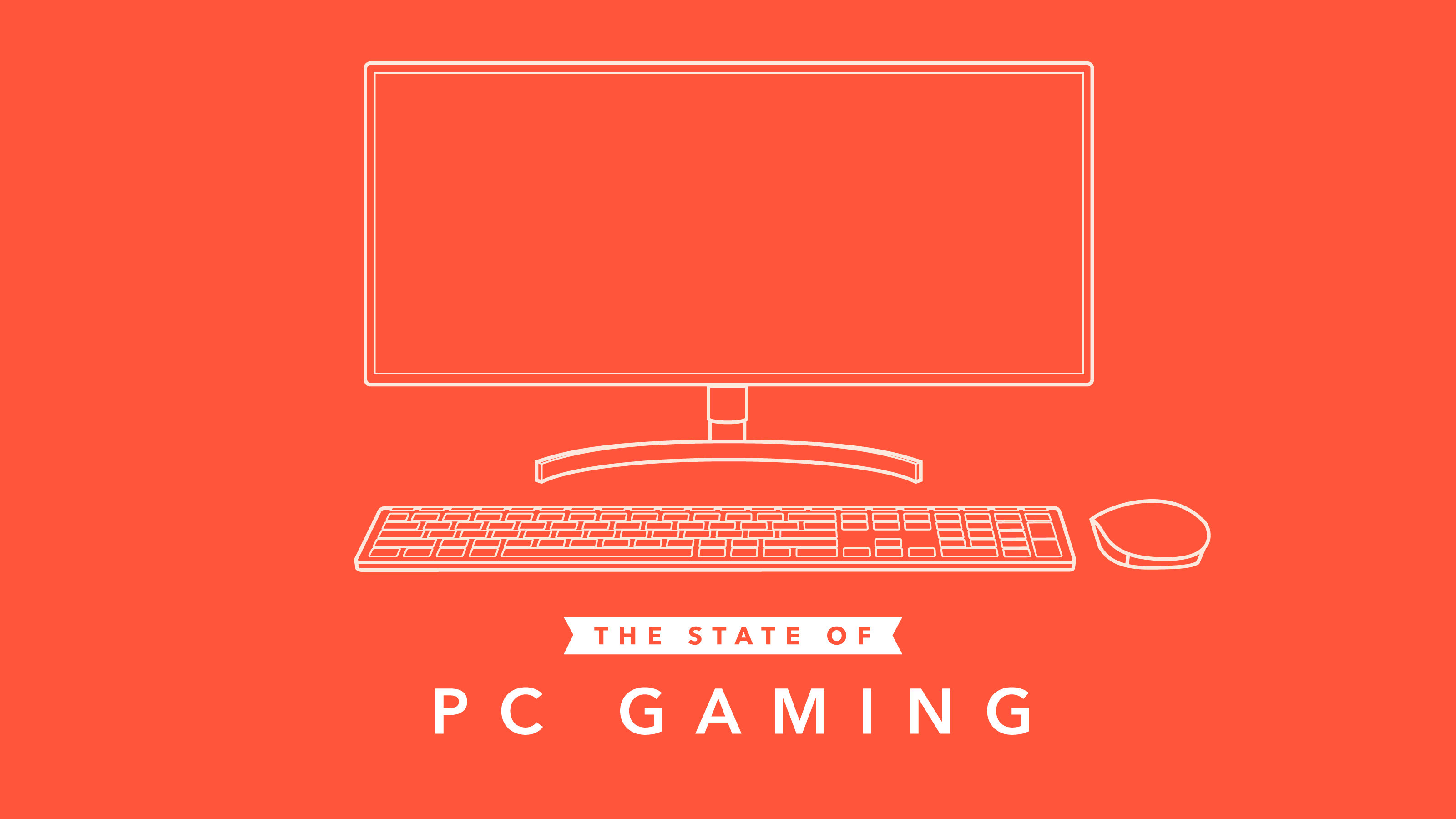
Sometimes, as borders erode, new fissures form in their wake. In 2019, more games flowed between PC and other platforms than ever before, but a single major division cracked the PC gaming landscape in half.
This year’s central throughline was undoubtedly the titanic clash between Valve and Epic, with Epic snatching up every high-profile exclusive it could get its hands on, much to some PC gamers’ chagrin. But this year also saw longtime console exclusives like Red Dead Redemption 2, Heavy Rain, Journey, and Halo: Reach complete their years-long migrations to PC, with other heavy hitters like Death Stranding announced for PC as well. Games flowed in the opposite direction too, with the Nintendo Switch opening its doors to countless indie games that traditionally would have been PC-only affairs. Streaming and subscription services like Google Stadia and Project xCloud muddied the waters even more, putting PC-game-like experiences on platforms you’d never have imagined playing them on years before (albeit still with plenty of kinks to work out).
There are still some console exclusives, of course, and PC gaming retains its unique identity through things like mods, hardware configurations as numerous as grains of sand on the beach, and its inextricable ties to Twitch and YouTube. Increasingly, though, the lines between these platforms are dissolving, and everybody’s winding up back where so many series and genres started: on PC. As for how companies decide to divvy that up, well, that’s a muddier and potentially uglier question.
Steam
Steam made some real strides in terms of functionality this year, but its 2019 was defined, for better or worse, by opposition. In January, PC gaming’s premier one-stop shop lost a major first-person shooter, Metro Exodus, to fresh-faced multi-million dollar upstart The Epic Games Store. In response to this sudden platform exclusivity deal (Exodus was slated to launch just a couple weeks after), Valve stamped the game’s Steam store page with a statement declaring the move to be “unfair to Steam customers.” Not long after, Steam users review bombed previous Metro games and sent harassing messages to developers, including original Metro book series author Dmitry Glukhovsky.
This became a pattern with high-profile Epic Store announcements. Games like Borderlands 3 were met with irate, spittle-spattered reviews that took aim at Epic rather than the games themselves, and the small team behind indie Animal Crossing-Pokemon mashup Ooblets nearly drowned in coordinated abuse that even flooded their own Discord. It’s hard not to place some of the blame on Valve, which—when faced with the idea that its note about unfairness and the broader Steam culture it cultivated were partially to blame—said that it didn’t intend for the comment to be a “lightning rod” and noted that it purposefully said nothing in regard to subsequent exclusives to avoid pouring more fuel on the fire.
Still, Epic Store rage continues to simmer among Steam users, despite Valve’s efforts to defuse some of the weapons that incensed users tend to employ. The practice of review bombing has been around far longer than the Epic Store, but Valve once again took aim at the review score-tanking tactic in March, this time saying it would remove “off-topic review bombs” from affected games’ scores. This has, in some ways, limited review bombs’ effectiveness, but the new system didn’t do much to dissuade fuming Borderlands bombers in April, and more review bombs—both negative and, weirdly, positive—have sprung up since.

Valve tried to grapple with other elements of Steam’s sometimes-pernicious culture too, but in its own inconsistent, characteristically Valve way. In March, the company faced heavy criticism for the presence of Rape Day, a self-described “game where you can rape and murder during a zombie apocalypse,” on the Steam store. Ultimately, Valve decided to remove the game despite the fact that it was not “illegal or straight up trolling,” Valve’s stated line in the sand on an otherwise laissez-faire platform. The company did a poor job of explaining the game’s removal, chalking it up to Rape Day posing “unknown costs and risks” and leaving it largely at that. This revealed what many already knew to be true: Steam continues to pick and choose which games are allowed on its “open” storefront, but it does so with a frustrating lack of transparency. A degree of moderation is far from a bad thing, but later this year, Valve snapped 1,000 games into Thanos dust and offered only the vaguest of explanations. It also irrevocably blocked a visual novel for “sexual conduct involving a minor” despite a seeming lack thereof, so you can see how the company’s approach has become a point of contention.
Valve tried to do right by developers in other ways this year, again to mixed results. It tried to improve users’ ability to discover new games with an experimental set of Steam Labs tools, including an interactive game recommender that scans playtime and suggests new games of varying levels of obscurity based on its findings. These features were well-received, but broadly, Steam users still tend to find most games through tried and true methods: word of mouth generated by marketing, gaming sites, YouTube, and Twitch and Steam’s own best-seller charts, store page recommendations, and wishlists. Valve does not have any direct involvement with the former handful of methods, but it tried to tweak the latter few throughout the year. During the Steam summer sale, it hosted a store-wide meta game whose bizarrely complicated rule set confused many users into deleting games from their Steam wishlists. This also drew attention to algorithm issues that some developers said had been plaguing Steam since October 2018. In September 2019, Valve said it tweaked the algorithm again in hopes of doing a better job of surfacing smaller games, but some indie developers said the change had the opposite of its intended effect.
Despite a rocky year when it came to addressing platform and culture issues, Valve did have a pretty big 2019 in other ways. The company must be commended for generally improving its communication around Steam, posting regular blog entries and explaining major changes—even if it still majorly falters when it comes to transparency around minute decisions that arguably affect the platform day to day just as much. New features like an overhauled Steam library, meanwhile, were well-received. And while the company took one game, Dota card game spin-off Artefact, back to the drawing board, it released another, Dota auto battler spin-off Dota Underlords, to mostly positive reception and announced the loooooooong-awaited return of Half-Life in “flagship” VR game Half-Life: Alyx.
Epic Games Store
Epic spent its year going toe to toe with Steam, but even when it only had to support its own behemoth weight with its megalithic feetsy-weetsies, it stumbled. Certainly, Epic succeeded when it came to locking down high-profile timed exclusives, enticing aforementioned heavy hitters like Borderlands 3 and indies of all stripes alike with minimum guarantees on sales that’d help ferry companies through the gaming industry’s consistently choppy waters. Here are just a few notable games Epic managed to snag: Control, Heavy Rain, John Wick Hex, Outer Worlds, Outer Wilds, Journey, The Division 2, and Untitled Goose Game.
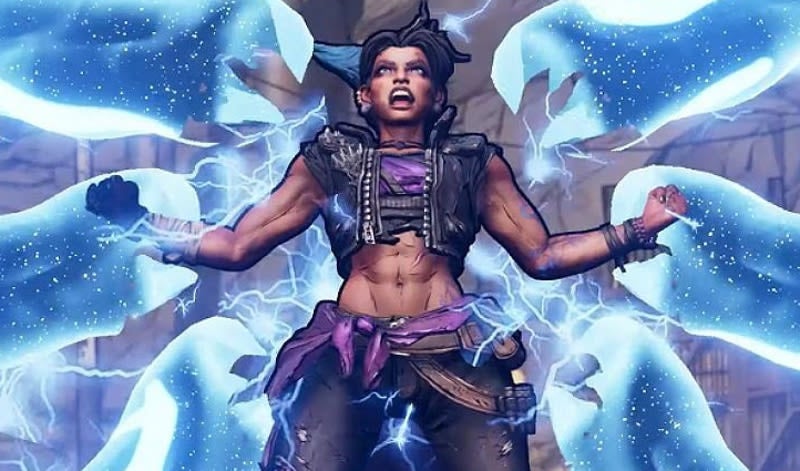
In justifying the unpopular strategy, Epic continually cited its desire to push back against the industry standard of a 70/30 split between developers and platform holders (Epic instead offers an 88/12 split). “The 30% store tax usually exceeds the entire profits of the developer who built the game that’s sold. This is a disastrous situation for developers and publishers alike, so I believe the strategy of exclusives is proportionate to the problem,” said Epic founder Tim Sweeney in June, noting that he believes developers with more money will reinvest in the creation of more games and price reduction, both of which he sees as good things for people who regularly buy games. That is not to say, of course, that what Epic is doing is purely altruistic; it’s a gigantic company that’s first and foremost out to make money, and it can now do so through its store and developers who reinvest money into game development by—just spitballing here—licensing Epic’s Unreal game engine technology, the cornerstone of its business.
This rationale did not quell the extremely vocal minority behind the lion’s share of Epic Store rage, which was by that point trading in abuse and conspiracy theories (in addition to legitimate complaints) to justify concerns about issues Steam also either had semi-recently or continues to have. It did not help that Epic was slow to address legitimate grievances, coming out the gate with a threadbare offering that only improved moderately over the course of the year. Its first big sale, for example, was a communications disaster in which developers who, it turns out, did not agree to participate in the sale wound up temporarily removing their games from the store so as to avoid getting caught up in the deal maelstrom. Frequently requested features like cloud saves, meanwhile, took the better part of a year to finally arrive, and while Epic’s public roadmap for the store is a nice bit of transparency, other key features like social functionality and achievements remain slated for some unspecified “future.” The store needs to justify itself meaningfully if it wants to wipe away the stain of its lacking launch, and so far, it has resolutely failed to do that.
VR
This year, both Valve and Oculus took their next bold steps into a VR future still limited by our present living rooms. For the high-end crowd, Oculus released the Oculus Rift S, meant to replace the first Oculus Rift, with improved hardware and the second generation of its Touch controllers. Valve, meanwhile, released its own VR headset, The Valve Index, that felt like a luxury successor to its 2016 collaboration with HTC, the Vive. However, in the Index’s case especially, VR remained a hassle to set up and use with any regularity. This continued to be a major barrier to entry.
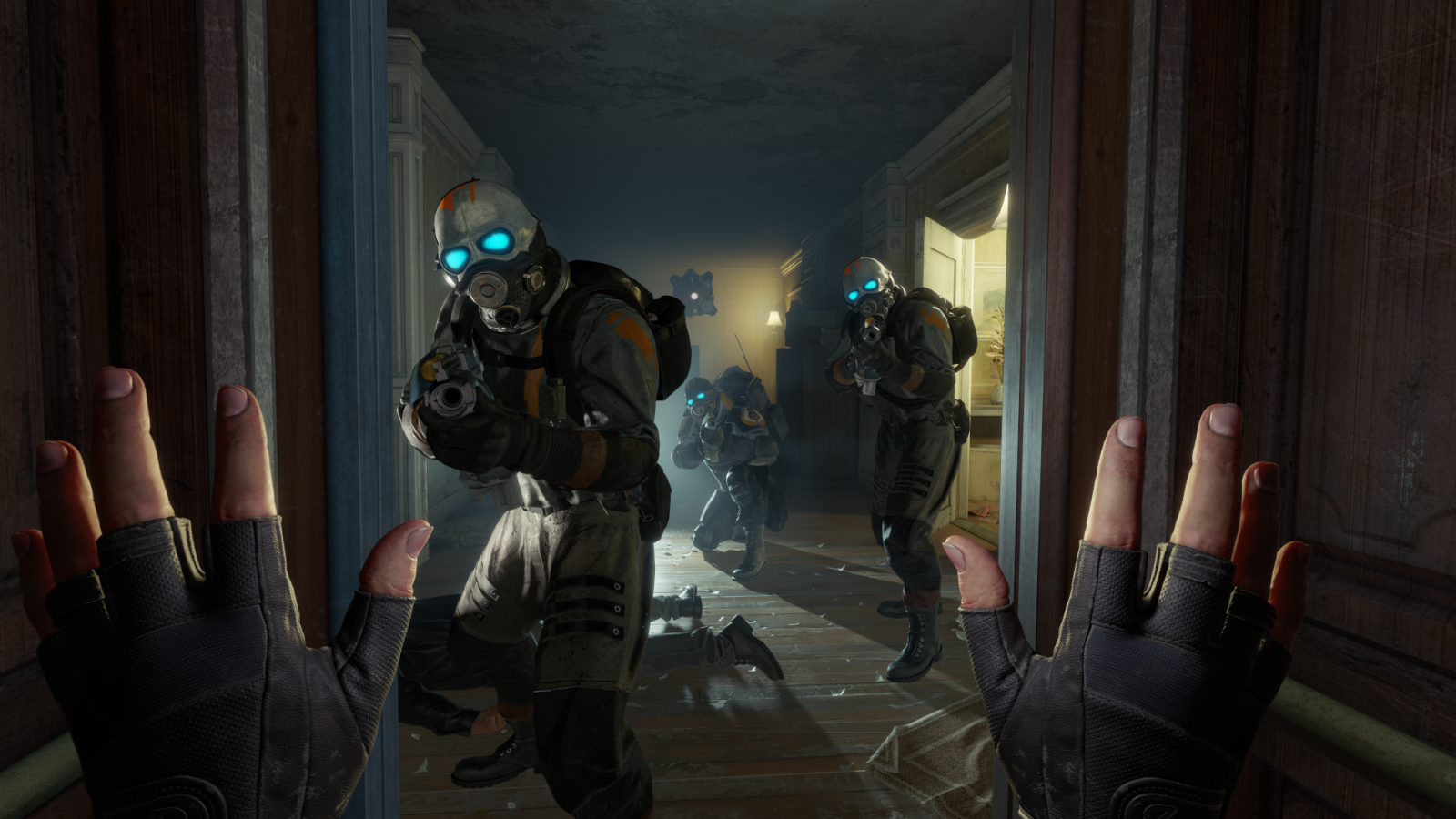
But Oculus also debuted a promising vision of VR—aka the future’s—future. Released in May, the Oculus Quest, unlike other headsets, is completely wireless. This minimizes the muss and fuss of setup. “Within 15 minutes of opening the package containing the Oculus Quest, Facebook’s new standalone virtual reality headset, I was playing a game. I wasn’t playing some watered-down mobile phone app or preinstalled demo, but a full-featured, console-quality VR game,” said Kotaku’s Mike Fahey shortly after the headset’s launch.
That said, while there are now a great many VR games to choose from, none have achieved elusive “must buy” status. As a result, VR is still a niche within a niche, and Steam stats show that just over one per cent of users own VR headsets. Will that change next year? Potentially. In November, Valve announced Half-Life: Alyx, which many VR fans (and probably also Valve) are hoping will be VR’s long-awaited killer app. Maybe it will finally crowbar the VR floodgates open just a little wider, or maybe it won’t. But it will definitely let us become marauding, headcrab-tossing thorns in the side of a fascist alien regime in the cramped comfort of our own living rooms, so at the absolute least, there’s that.
Xbox Game Pass For PC
In May, Xbox Game Pass came to Windows, bringing the console game subscription service to PC users. Though the service is still in beta, games like Halo: Reach, Gears 5, and The Outer Worlds were launch-day titles, making Game Pass for PC a pretty attractive option. Not all PC games support cross play or play anywhere, which prevents players from swapping smoothly between their PC and console, but Game Pass for PC is still a pretty good deal that will hopefully only get better.
PC Storefronts And Launchers
While Epic and Steam were this year’s most prominent rivals, they aren’t the only PC storefronts. GOG, CD Projekt Red’s store and launcher, got a redesign this year. Called GOG Galaxy 2.0, it promises the ability to bring your disparate games—including console games—into one library, along with your friends list and achievements. While it’s still in closed beta, GOG Galaxy 2.0 is a step toward the dream of not having to sort through a dozen launchers every time you want to play a game.
Rockstar released its own PC launcher this year as well with the Rockstar Launcher, which most prominently houses Red Dead Redemption 2 for PC. The launcher caused some issues for RDR2 on PC, but it brings Rockstar alongside the likes of publishers like Bethesda, EA, and Blizzard for places where you can download a game and then forget about it.
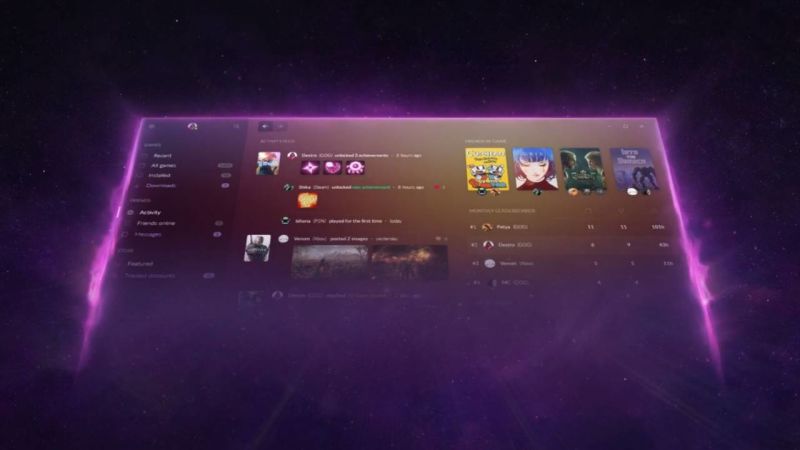
Things were pretty quiet on the other storefronts front. WoW Classic breathed some life in Battlenet, while platform mainstay Destiny 2 crossed over to the dark side and arrived on Steam. Apex Legends was a big draw for Electronic Arts’ Origin platform, but EA also brought its games back to Steam this year with Star Wars Jedi: Fallen Order, as well as Apex Legends, The Sims 4, and more to follow. While Epic searches for every exclusive it can get its hands on, it seems like other companies are a little more willing to share the wealth.
The Games
Auto chess was the PC’s standout genre in 2019, springing out of a Dota mod and bringing Valve, Riot, and Blizzard’s own takes into the fold. Other than that, it feels like there weren’t many PC-exclusive standout games this year, with PC hit Outer Wilds now on console and many of the year’s other big games being multiplatform. Major releases like Metro Exodus, Outer Worlds, Borderlands 3, and Control were Epic exclusives, but they weren’t exclusive to PC. The Switch was a second home for many of the year’s best indie PC games, such as Baba Is You and Untitled Goose Game. 2019 felt marked by a slow chipping away at platform exclusivity overall, as games and studios that had long been console only crossed over to the PC side.
Red Dead Redemption 2’s November PC launch was rocky, but it still brought the hoped-for console game to PC. Studio Quantic Dream broke its long-time console exclusivity this year, bringing Heavy Rain and Beyond: Two Souls to the Epic Games Store, with Detroit: Become Human coming next week. Yakuza Kiwami and Kiwami 2 came to PC, following last year’s PC release of Yakuza 0. Longstanding console exclusive Catherine came to Steam in January as Catherine Classic. With Death Stranding is on its way to PC next year, it feels like console exclusives are becoming a thing of the past.
Many of these big arrivals brought massive file sizes with them. Gears 5, Call of Duty, and Red Dead Redemption 2 all clocked in at over 100 GB. As games get more graphically intense, we’re sure to see even bigger file sizes. Might be time to start stocking up on SSDs.
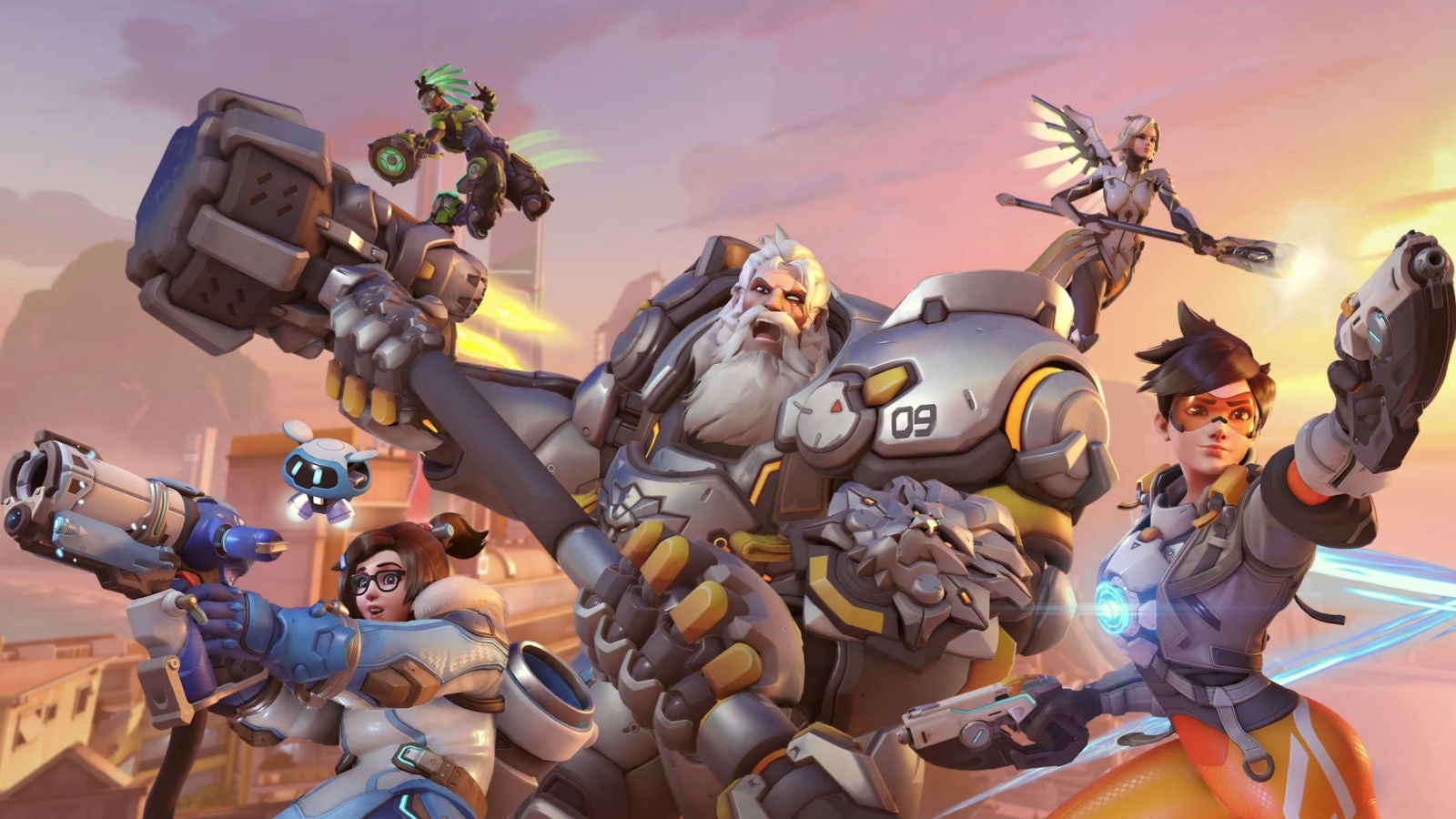
Live, constantly-updating PC games like League of Legends continued to exist almost as platforms unto themselves, as did PC versions of games like Fortnite, Warframe, and World of Warcraft. Almost as important, PC remains the go-to platform for these games in the worlds of Twitch and YouTube. In 2019, this drove the platform’s relevance more than ever, whether it was through the record-breaking launch of World of Warcraft Classic or out-of-nowhere streaming sensations like No Pixel, a Grand Theft Auto V server modified for role-playing purposes that—while far from the first—rapidly became the biggest. Minecraft also had a resurgence on Twitch and YouTube, reinvigorating interest in a fiddly, sometimes un-intuitive experience that is quintessentially PC.
Some of these long-running games even got sequels this year, with Blizzard announcing Overwatch 2 and Grinding Gear Games debuting Path of Exile 2. Though not exactly a sequel, Fortnite’s Chapter 2 overhauled the megalith battle royale’s map and systems following an internet-breaking end-of-season stunt. All of these sequels are folding into their predecessors so as not to split player bases or the microtransaction-powered ecosystems those players log into every day. PC gaming pioneered the idea of online games as singular places you go to, individual islands you vacation to every day. Now it’s evolving that idea. Time will tell if it pays off for players, or if this new breed of sequel is just a thinly veiled cash grab.
On the Mac side of things, Apple’s Catalina update ended support for 32-bit apps, which meant the end of many classic and indie games. RIP.
Hardware
Last year’s cryptocurrency mining-induced GPU shortage was over in 2019, and now we’re back to having to choose which graphics card to buy instead of grabbing whatever we could still find on the shelves. AMD and Nvidia continued their endless rivalry, with Nvidia releasing Super versions of its RTX 20 cards this year, while AMD fired back with the Radeon 5700 and 5700XT. As our colleagues at Gizmodo wrote, the Navi architecture undergirding the AMD cards is going to figure big into the next generation of console gaming. Alongside Nvidia cards’ ray tracing capabilities, 2019 felt less like giant leaps forward and more like a year of preparing for the future.
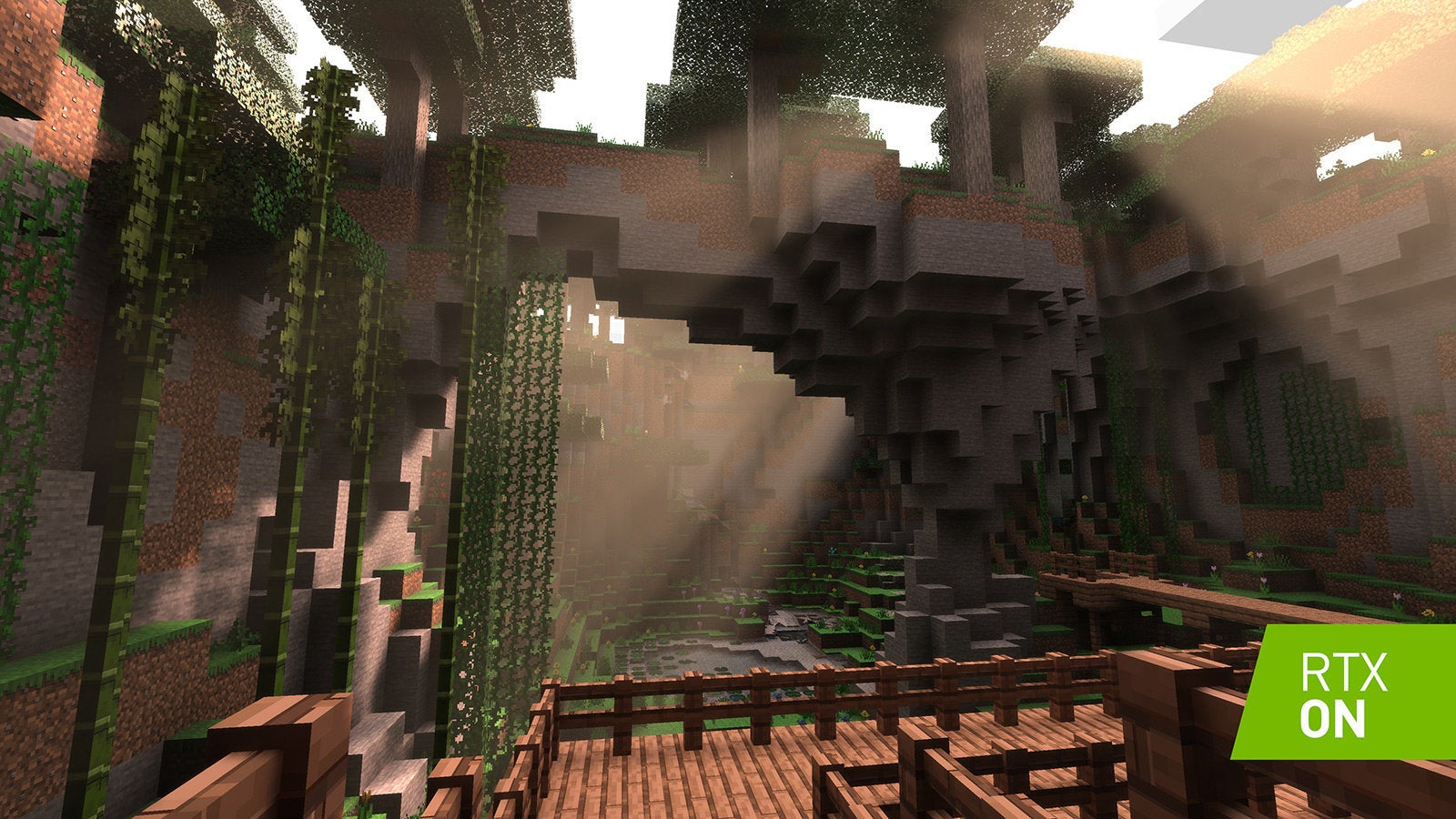
Ray tracing was announced last year, but 2019 felt like the year it was suddenly everywhere, with even Minecraft getting in on the action. Nvidia is leading the way on the fancy—and intensive—lighting effect technology with its RTX 20 series, though in April 2019, some of its older GPUs got pared-down versions of the ability as well. While ray tracing still isn’t ubiquitous, more games will be getting the ability in the future. This is cool, even if lighting effects are next to hair animations for the first of several features that many players turn off when a game won’t run smoothly.
The Future
Even as the lines surrounding traditional platforms grow hazier and less defined, Valve and Epic continue to duke it out, with no clear winner in sight. Next year will hopefully bring answers to some big questions: Will Epic keep up its exclusives-heavy strategy? Will it be able to get its store’s feature set up to speed in a timely fashion? Will Steam continue to try out new features and ideas, pressured as it seems to be by Epic’s store? Will developers be able to find stability in the midst of it all?
In addition, PC has become a battleground just as Sony and Microsoft prepare to release new consoles and continue the ceaseless, crashing dance that is contrived corporate rivalry. Next year will see consoles once again try to step up to the same level as high-ish end PCs, which will hopefully result in new games that push PC hardware a little more.
Increasingly, though, PC gaming seems determined to change our definition of what a platform even is. Individual games and the communities people form within them and around them—not to mention in gathering places like Discord and Reddit—function more and more as platforms of their own, to the point that companies like Blizzard and Epic are wary of breaking them up with traditional sequels to their colossal games. In the coming years, how will that impact the sorts of games people make and the way developers leverage higher-end hardware? Where will that leave PC gaming? It’s impossible to say, but we’re only just now beginning to see the first ripple effects of a complete sea change.